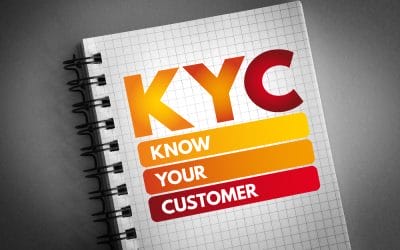Implementing Client Due Diligence in Credit Unions: Protecting Members and Ensuring Compliance
The evolving financial and political climate of 2023 and a post-pandemic market have left financial institutions and credit unions facing unique challenges as they navigate the new and growing risks associated with conducting business in an increasingly digital world. With cyber criminals utilizing new efforts and tactics to pursue illicit activities like fraud, money laundering, identity theft, terrorist funding and channelling dollars into the drug and human slavery trade, the need to be vigilant when implementing counter-crime measures is more important than ever before.
Customer Due Diligence (CDD) plays an essential role in the fight against FinCrime and is particularly vital for credit unions to adapt to their existing security measures. CDD empowers financial institutions and businesses to remove the risk associated with partnering with unknown entities and individuals, prevents money laundering (AML) from happening within their own “walls”, and serves as a strong deterrent against opportunistic criminals looking to victimize your business.
Below, we’ll take a closer look at the implementation of CDD within credit unions, as well as the benefits of partnering with a proven KYC software vendor like iComply. Read on to learn more.
The Importance of Regulatory Compliance in Credit Unions
Credit unions operate within a regulatory framework that requires compliance with a wide range of anti-money laundering (AML) and Know Your Customer (KYC) measures. These protocols are constantly evolving as global legislators like FinCEN attempt to thwart new criminal operations and changing approaches adopted by fraudsters etc. Staying on top of compliance protocols helps to maintain the integrity and safety of financial institutions, as well as protect credit unions (and their clientele) from unnecessary risks associated with questionable actors. Failure to comply can not only lead to heft fines (2022 saw nearly $5 billion in fines issued), but can also damage your reputation and lead to unintentional association with, or liability tied to criminal networks.
Membership Verification and Eligibility
Unlike traditional banks, credit unions typically serve a much more specific group of clientele, though the grounds for membership have relaxed for most modern unions. As a result of the unique requirements for onboarding, CDD for credit unions also involves verifying an applicant’s eligibility as well as their overall risk profile. Relevant documents, including those that provide proof of employment or residency to show they share the common bond. CDD protocols for credit unions must also have robust data management capabilities to keep track of qualification information should someone change jobs, relocate, or have other changes that would effect their membership.
Thorough Loan Underwriting and Risk Assessment
Credit unions offer their clients various loan services including personal, auto, and mortgage loans. To protect the best interests of both the union and clients, CDD plays an integral role in assessing the overall risk profile of applicants, as well as their creditworthiness for the specific service at hand. Details assessed to determine loan compatibility include credit history, financial information, evaluating repayment capacity and other outstanding debts, and related data. Thorough risk assessments enable credit unions to offer appropriate loan terms, interest rates, and credit limits while minimizing the risk of default, and also reduces the opportunity for fraudulent users to misappropriate funds in the process.
Ongoing Monitoring and Transaction Analysis
Just like any other financial institution, KYC and CDD protocols mandate that credit unions must have the proper systems in place to conduct ongoing monitoring of member activities. A union’s CDD platform must sufficiently monitor transactions, identify any core transaction patterns, flag suspicious behaviour, and make it easy for the recording institution to report questionable activity as quickly as possible. By implementing transaction monitoring systems and leveraging technological solutions like the modular suite of KYC and CDD products offered by iComply, credit unions can automate the process of flagging suspicious transactions based on predefined criteria, keeping your institution above board and in line with all AML and anti-fraud requirements within your jurisdiction.
Creating a Culture of Awareness
Finally, while training and education regarding CDD and KYC protocols is not exclusive to security requirements for credit unions, it is integral for the successful implementation of all safety measures. Proactivity remains one of the strongest assets in the global fight against financial crime. Credit unions, as well as all market players subject to regulatory standards must ensure that all employees understand the implications and importances of upholding best practices, as well as the repercussions for failing to do so. Staff should be educated on the importance of CDD, regulatory requirements, and the identification of red flags for potential illicit activities.
iComplyKYC Your Partner in Compliance
At iComplyKYC, we know the importance of integrating CDD practices into the backbone of your organization, as well as the peace of mind that comes with having the right solutions in place. iComply’s modular suite of KYC products, helps streamlines your identification and security processes, making it easy for credit unions to manage compliance protocols.
Book a demo with our team today to learn more about iComplyKYC’s CDD solutions and discover how our platform can be customized to fit the needs of your business or organization.
learn more
Is your AML compliance too expensive, time-consuming, or ineffective?
iComply enables financial services providers to reduce costs, risk, and complexity and improve staff capacity, effectiveness, and customer experience.
Request a demo today.
AML Technology: Transforming Compliance Practices
Anti-Money Laundering (AML) technology is revolutionizing compliance practices in financial institutions. Advanced tools and technologies enhance the efficiency and accuracy of AML efforts, helping organizations detect, prevent,...
Risk Management Strategies for AML Compliance
Effective risk management is essential for Anti-Money Laundering (AML) compliance. Financial institutions must identify, assess, and mitigate AML risks to prevent money laundering and ensure regulatory compliance. This article...
Global AML Regulations: What You Need to Know
Anti-Money Laundering (AML) regulations are critical for financial institutions worldwide to prevent money laundering and other financial crimes. This article provides an overview of global AML regulations, highlighting the key requirements and best practices to...
















